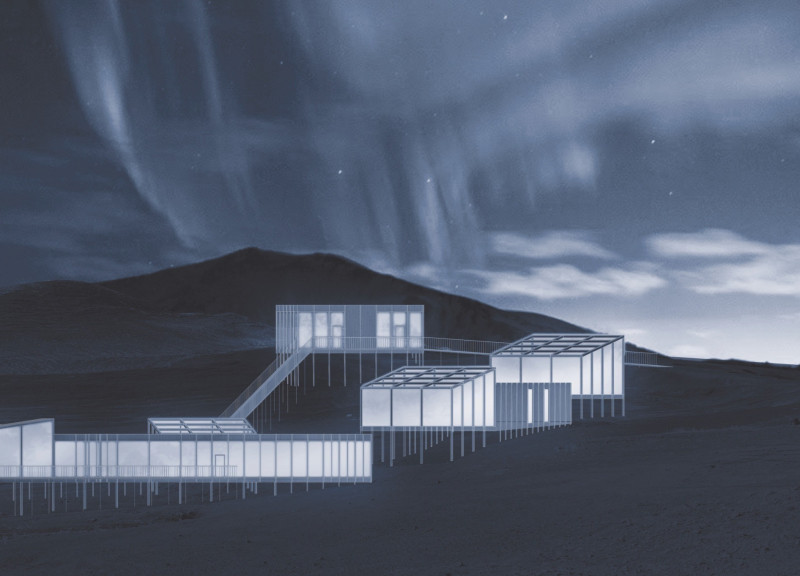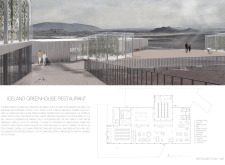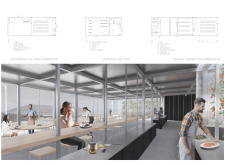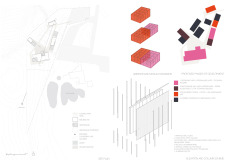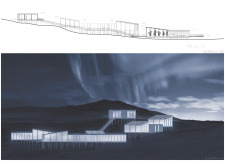5 key facts about this project
The architectural layout is informed by the natural topography, creating varied elevations that provide dynamic visual experiences for diners. The arrangement encourages exploration and interaction between spaces, with landscaped pathways guiding patrons through different areas of the site. Each building serves a distinct purpose while contributing to the overall cohesion of the project.
Sustainability is a core tenet of the design, evident in the choice of materials and the operational philosophy. The structural integrity of the buildings relies on recycled steel frames and aluminum paneling, which ensure durability and energy efficiency. Wooden elements provide warmth and contribute to the interior aesthetics. Extensive glazing enhances natural light and promotes thermal regulation, fostering a connection between indoor and outdoor environments.
One of the standout features of the Iceland Greenhouse Restaurant is its focus on education and awareness surrounding sustainable practices. The integrated greenhouses not only serve as a source of fresh produce for the restaurant but also act as a platform for visitors to learn about local agriculture and ecological responsibility. This dual-functionality is a significant differentiating factor compared to typical restaurant designs, where the connection to food production is often overlooked.
The project’s modular design allows for future expansions, enhancing its adaptability. This intentional planning ensures that as the community grows and evolves, the restaurant can evolve alongside it without compromising its core values or functionality. The layered design strategy, which incorporates various structures and uses, reflects a contemporary approach to architecture that prioritizes flexibility and responsiveness to the environment.
For a deeper understanding of the Iceland Greenhouse Restaurant, including detailed architectural plans, sections, and designs, exploring the project's presentation is recommended. By examining these elements, readers can gain further insights into the architectural ideas and innovative approaches that define this unique project.


